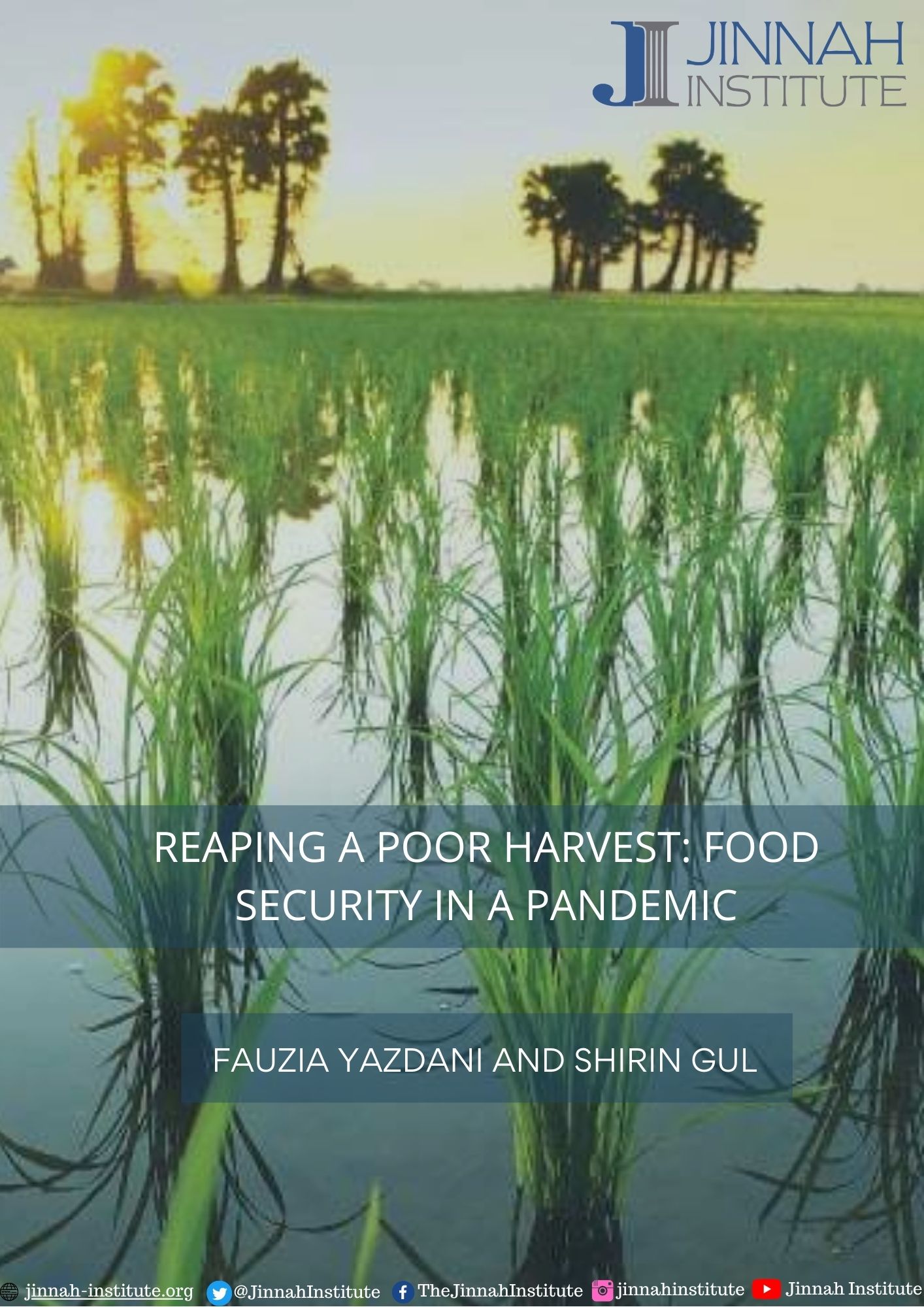Policy Brief
Reaping a Poor Harvest: Food Security in a Pandemic
by: Fauzia Yazdani & Shirin Gul
Date: March 17, 2021
Among other disruptions taking place during the COVID-19 pandemic was the periodic shortage of food staples in Pakistan over 2020. Much of this was attributed to malfunctioning supply chains, poor governance or hoarding scandals. But it also exposed the dire food insecurity of a country whose traditional strengths include agricultural production and export. The pandemic placed immense strain on already weak governance structures and slowed down large segments of the economy. Like the rest of the world, Pakistan struggled to provide for its poorest cohorts who continue to experience a near permanent state of food vulnerability.
However, food shortages predate the pandemic by decades. Unchecked population growth, climate induced stress and diminishing growth in the agriculture sector are the usual factors explaining why food availability is constrained. This brief will contextualise additional stresses that have emerged as a result of the COVID-19 pandemic, and review economic, political and social patterns that structure Pakistan’s path to food security. It highlights national policy stances towards reducing multidimensional poverty, of which food insecurity is a primary component, and provides recommendations to course-correct policy frameworks and implementation, based on later-day evidence.

